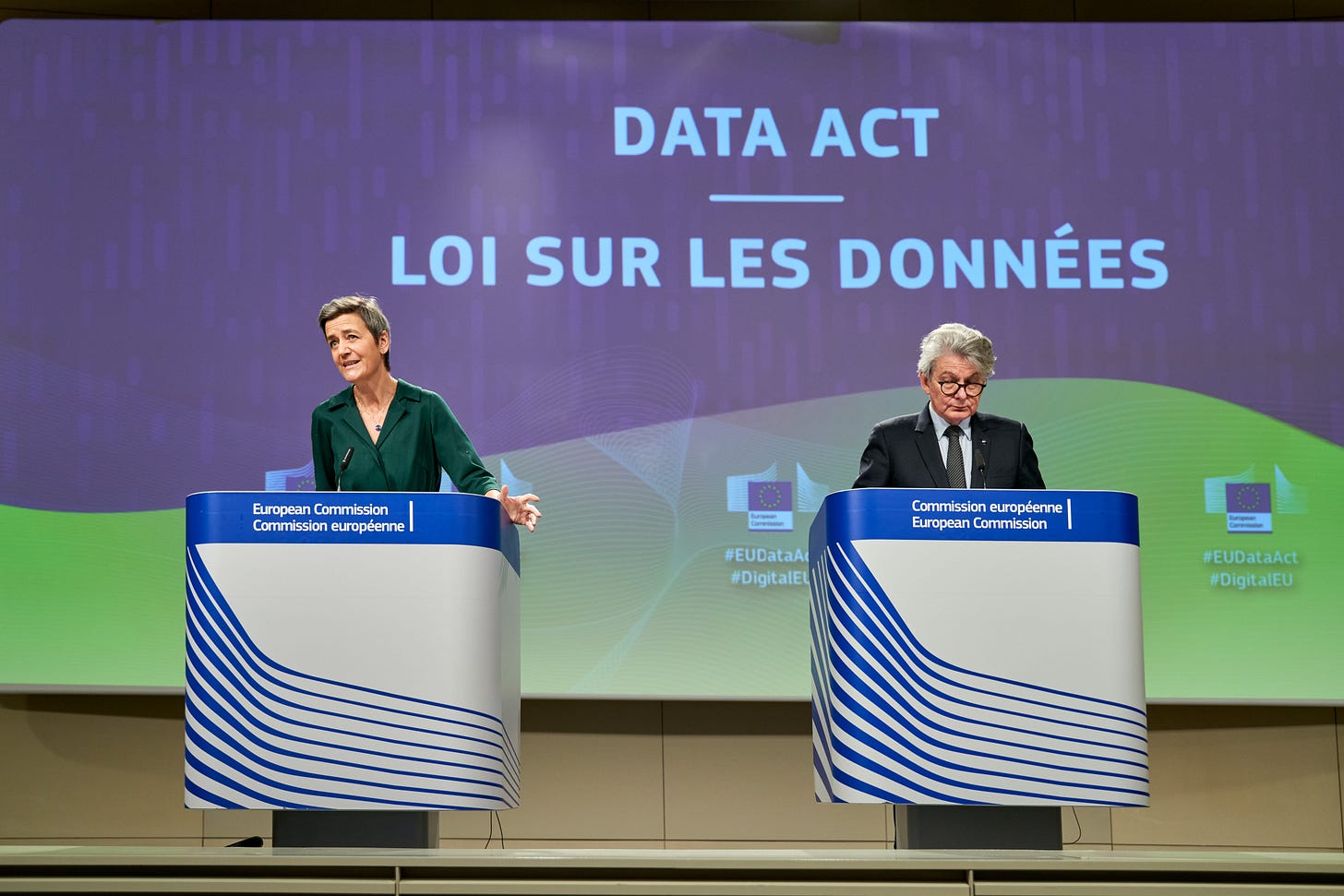Previously sceptical EU politicians are warming to 'tech sovereignty' idea
Conservative/Liberal MEPs and national governments who until now have been warning against onerous burdens on American big tech have suddenly over the past weeks changed their tune.
For many years, European politicians have been divided into two camps on how to deal with American big tech. There was the camp of Frenchman Thierry Breton, the former internal market commissioner in Ursula von der Leyen’s first-term commission (she booted him out before her second term), who warned that Europe is too reliant on American tech and needed to show regulatory muscle while developing European alternatives. Then there was the camp of Magrethe Vestager, the competition commissioner Breton often clashed with (she was technically also in charge of digital affairs but Breton muscled his way into the file) who advocated a more cautious approach and didn’t like the idea of EU intervention to create “European champions” in tech.
That Vestager is from Denmark and Breton is from France is reflective of their home countries’ perspectives on this issue. Denmark is a member of the “Digital Nine” (now D9+) grouping of small-to-medium EU countries who banded together in 2016 to resist the efforts of big EU member states to set more regulations on American big tech. The members - Denmark, Finland, Sweden, the Netherlands, Luxembourg, Belgium, Spain, Ireland, Estonia, Czechia, Poland and Portugal - describe themselves as “pro-tech advocates of an open digital economy”. But the declaration adopted at their summit in Amsterdam last month struck a suddenly different tune, endorsing the principle of “tech sovereignty” and saying Europe “needs to strengthen its technological capabilities as well as trade relations.” The same voices who just two months ago were defending JD Vance’s scolding of Europe’s attempts at tech sovereignty at the AI Summit in Paris seem to have suddenly changed tune.




